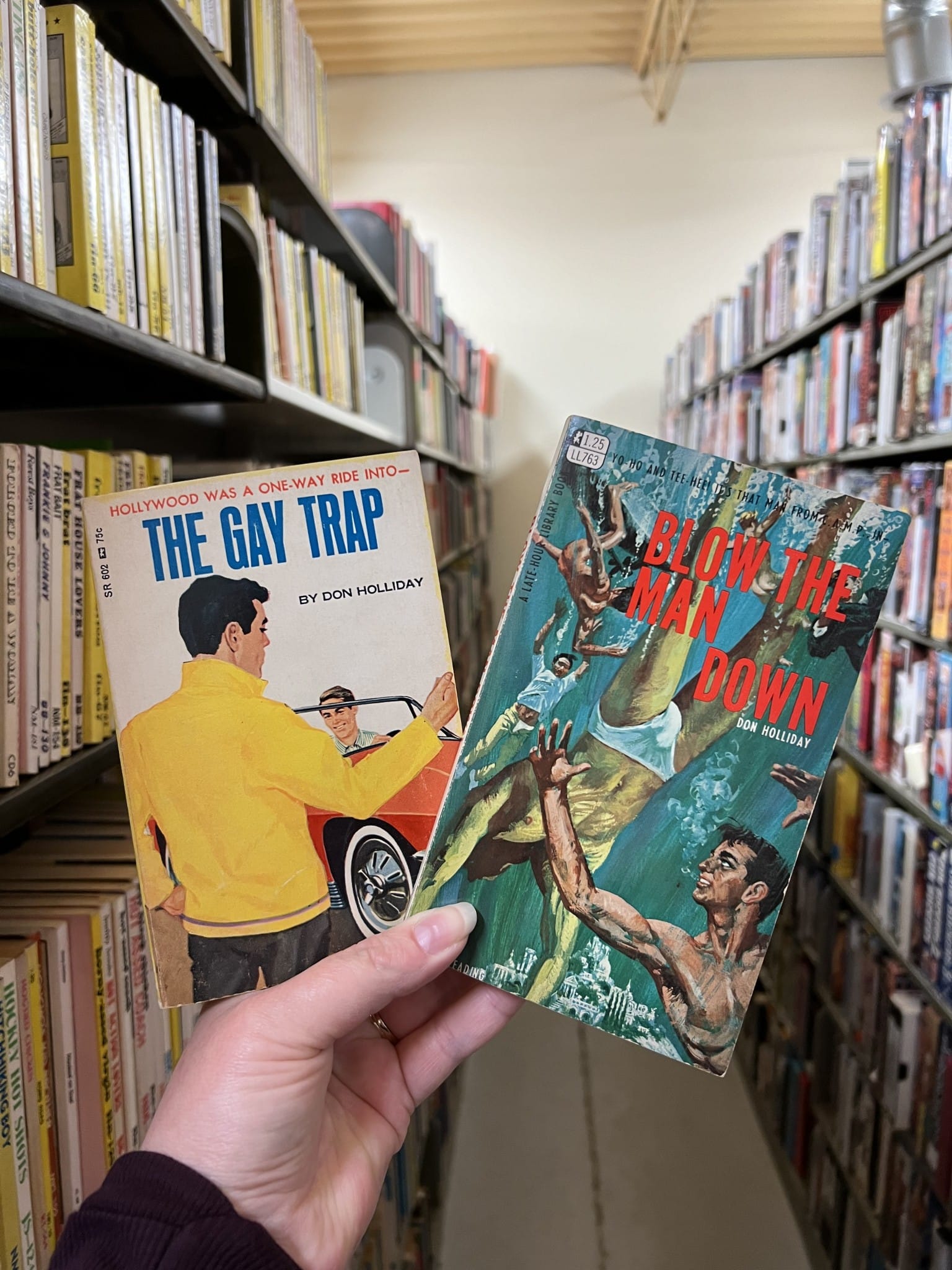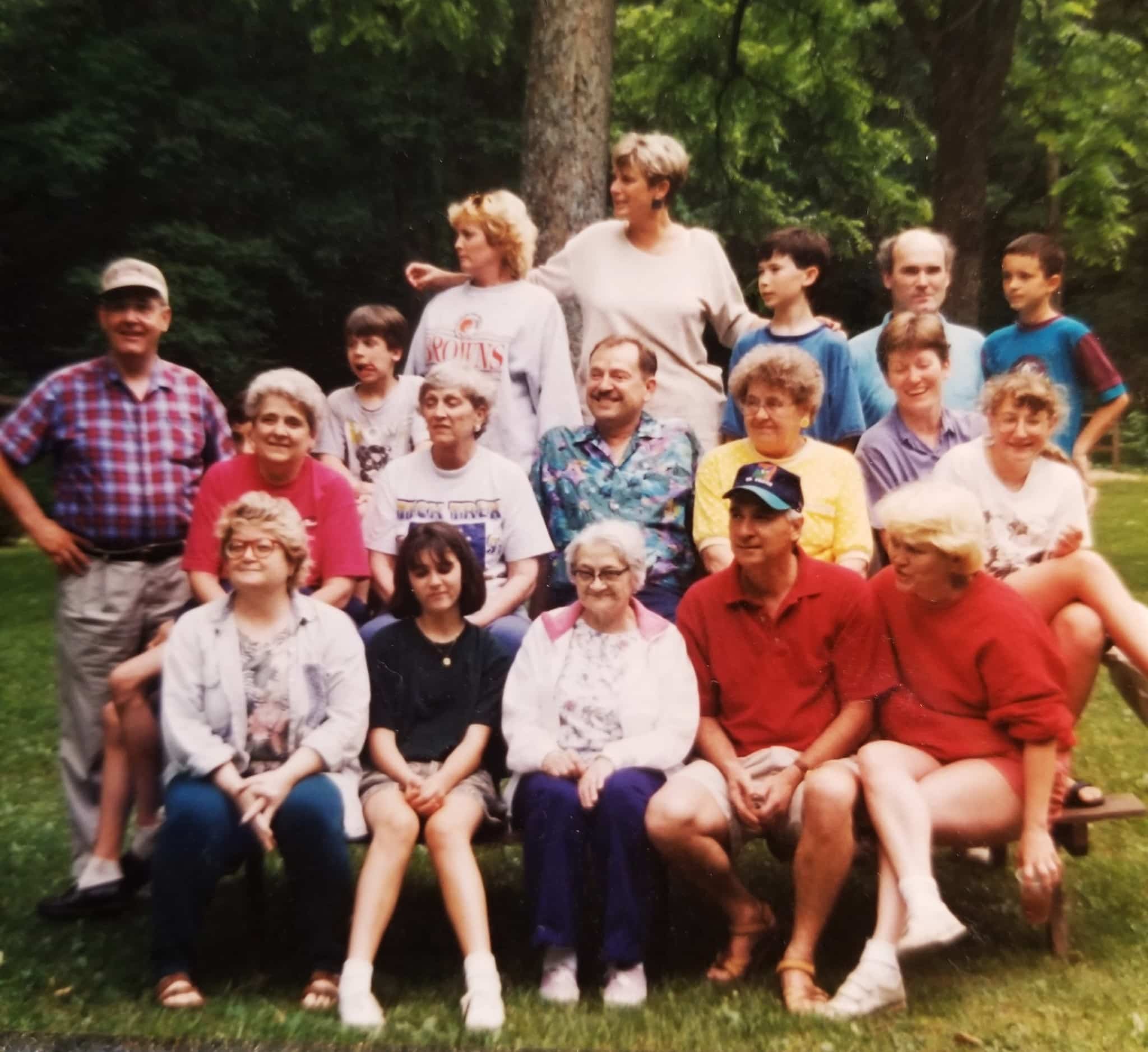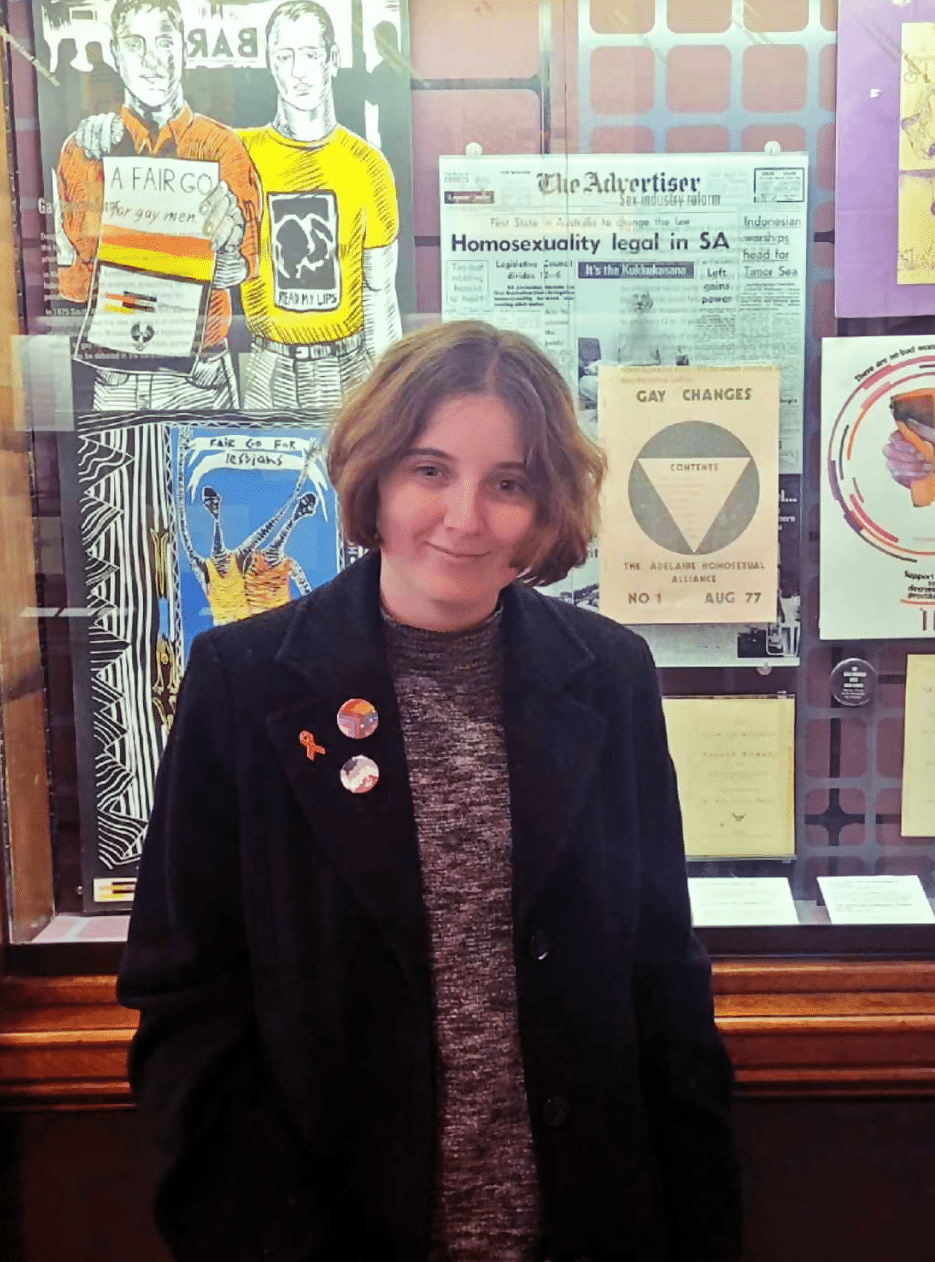This story was originally published by The Buckeye Flame, an online platform dedicated to amplifying the voices of LGBTQ+ Ohioans to support community and civic empowerment through the creation of engaging content that chronicles their triumphs, struggles, and lived experiences.
He is known by many names— Victor J. Banis, Don Holliday, Victor Samuels, Victor Jay, Jay Vickery, Jan Alexander, Lynn Benedict and, perhaps most notably, the godfather of gay pulp fiction. Through his writing career, the small-town Ohioan created a space for LGBTQ+ literature and captured a global audience.
Banis was a gay man who spent his youth in the Ohio cities of Eaton, Dayton and Cincinnati before moving to Los Angeles in his early 20s. He was an author known for writing gay pulp fiction starting in the 1960s, before crossing over into a variety of genres. He remained active until 2011, writing over 200 books in his lifetime before passing away in 2019.
His most popular series is called “The Man from C.AM.P.” Banis wrote the series about a gay secret agent named Jackie Holmes. It was inspired by James Bond and “The Man from U.N.C.L.E.”
Preble County Pride Board Chairman Clayton Jaros described Banis as a pioneer of gay pulp fiction. He said “The Man From C.A.M.P.” transcends time and remains relevant, despite being written over 50 years ago.
“Maggie” Weadick, 50, of western Ohio, knew Banis as “Uncle Victor” – she is Banis’ great niece. She said the series was one of the first positive portrayals of a gay secret agent in fiction.
“Jackie Holmes was the main detective and he was super cool, super suave. It was a really positive book about the community because a lot of books were about tragic love stories and things that didn’t end in a positive manner,” Weadick said. “In these books, he was always the hero. And he always got his guy.”
CLAYTON JAROS, CHAIRMAN, PREBLE COUNTY PRIDE BOARD“It’s very important, especially in rural communities, for folks to realize that LGBT people have always been around. … Our idea of showcasing a local gay author is to showcase that we’re here.”
In Banis’ autobiography “Spine Intact, Some Creases,” he paints a portrait of life as a gay man in rural Ohio in the 1950s and chronicles his unexpected rise into gay pulp fiction. In one excerpt from the autobiography, Banis writes:
“It was said in the late sixties, and I have no reason to doubt it, that I was at the time the most widely read gay writer in the world – or, more correctly, the most widely read writer of gay material. I hasten to say that this was in part a matter of having written large numbers of different books and not because any single book racked up such spectacular sales figures, though certainly many of them did well. By the early seventies, by the most conservative estimates, there were more than three million copies of my gay books in circulation.”
Randy Phillips, former director of the Greater Dayton LGBT Center and current executive director of Dayton Public Access Television (DATV), said Banis’ books were translated into six different languages and distributed all over the world, leading the Ohio writer to legal trouble for “conspiracy to distribute obscene materials.”
Despite the wide reach of Banis’ work, many of his books are hard to find. Phillips said there are about 20 of Banis’ books available for checkout at the Greater Dayton LGBT Center. Both the center and Weadick are working to amass Banis’ full collection.

Outdated Views
While Banis created a positive space for gay fiction, he didn’t always create a realistic representation of the LGBTQ+ community. He not only wrote about gay men; he also wrote lesbian pulp novels, with mixed results.
“A lot of it transcended the time, and it is as relevant today as it was in the ‘60s and ‘70s,” Phillips said. “Others did not age well, but I think that could be said of any writer.”
The Gerber/Hart LGBTQ+ Library and Archives in Chicago preserves the history and culture of LGBTQ+ communities in Chicago and the Midwest. Gerber/ Hart Community Outreach & Strategic Partnerships Manager Jen Dentel said authors like Banis created a space for queer people in literature. However, to fit into societal standards, the subject matter was often less than inclusive.
At the time, most pulps involving lesbian content were written by straight men, for straight men. While Banis stretched that mold by writing lesbian content as a gay man, he still majorly abided by the standards of his time.
Dentel said one major indicator of Banis’ quality of work appears in “The Lesbian in Literature” bibliography that was published in 1967. This text was created by the editors of The Ladder, the first nationally distributed lesbian magazine in the U.S., to help judge the quality of lesbian content in works at the time.
The bibliography ranks lesbian literature and has a rating system using A, B, C and T. An A rating indicates “major lesbian characters and/ or action,” while a T stands for trash.
In the first edition of the bibliography, Banis has 21 books featured. While 16 are rated T, five are rated A. One book, “The Wild Night,” has an A rating and commentary that reads: “It is regrettable that this author chose to introduce elements in the majority of his novels which force the T designation for most of them, since he does write well and has written several sympathetic lesbian portraits in a few of his novels.”
In the third edition of “The Lesbian in Literature,” the majority of T-rated books were removed. And yet, Banis persevered with five A-rated pulps.
“There were specific people within the genre that could subvert and work within this really sexist, repressive model and make something that reached other people,” Dentel said. “I think that even though the vast majority of the work is something that now wouldn’t resonate with someone or [would] make it difficult to read, I think because it made this space, it was so important.”
The Victor J. Banis Foundation

Weadick aims to preserve her uncle’s work and continue his legacy with the Victor J. Banis Family Foundation. The Foundation was prompted by public interest in Banis’ work- notably, when he was honored at the 2020 Rubi Awards as one of “Dayton’s LGBT Trailblazers.”
“Victor’s one of my favorite uncles. He’s always been a part of our life,” Weadick said. “He’s always been my uncle and I’ve always thought he was cool. But it’s nice to see other people recognize that.”
Weadick is working with Preble County Pride to spread the word about Banis’ legacy. Jaros said Preble Pride will be collaborating with the foundation to create a fundraising event in the near future.
“It’s very important, especially in rural communities, for folks to realize that LGBT people have always been around. They’ve always been present in society, just not outwardly so. When you grew up in a place like Preble County, being LGBT, it feels like a vacuum. It feels like you’re alone. It feels like things could be hopeless sometimes,” Jaros said. “Our idea of showcasing a local gay author is to showcase that we’re here.”
The Victor J. Banis Foundation has three main goals: Preserve Banis’ memory, collect as much of Banis’ work as possible to and expand and broaden the “Man from C.A.M.P.” series
A New Series
While developing the foundation, Weadick received inspiration from an unexpected source.
In 2022, 27-year-old Australian writer Lauren Fox saw news of anti-trans legislation in the United States. While at the gym, she had “a collision of unintentional trains of thought” on how to support a country on the opposite side of the world. She flashed back to her college days reading an Ohioan’s pulp novel. As a queer person interested in spy fiction, she was easily obsessed with Banis’ work.

Fox set out to create a collaborative online series to continue the “Man from C.A.M.P.” series and raise money for LGBTQ+ rights organizations.
While reaching out to Banis’ publisher about the series’ copyright, Fox was connected with Weadick. Weadick was already working on laying the groundwork for a similar project.
“I was surprised that someone so young and in a foreign country was interested and knew so much about [Banis’ work],” Weadick said.
Fox described the meeting as serendipitous. With Weadick’s support, Fox is writing the first book in a new spinoff series of “The Man from C.A.M.P.” called “Agents of C.A.M.P.” The intent of the spinoff series is to jumpstart the foundation’s goal to inspire writers.
The book will be titled “The Golden Doppelbangers” to continue Banis’ queer wordplay from the original series. Inspired by Banis’ original work, and thoroughly inspired by 1960s spy and heist movies like “Modesty Blaise” and “How to Steal a Million,” Fox is aiming to create characters that reflect Banis’ diverse representation while creating inclusive storytelling that is rare even for today’s standards.
For example, the character Quant Chevalier is agender, asexual and has a disability. Fox said she believes that many writers may avoid creating asexual characters because it may create fewer opportunities for sexual tensions and romances. However, Fox sees an asexual character as the perfect opportunity to explore often unseen tropes, like a secret agent being unaffected by a sexy enemy agent.
Additionally, Chevalier has a visual impairment and wears an eye patch. Although wearing an eye patch is common in spy fiction, Fox aims to address how the disability impacts the character’s life.
Several organizations helped Fox research her book, including The Charles Deering McCormick Library at Northwestern University; the UCLA Library Special Collections; the Jean-Nickolaus Tretter Collection in Gay, Lesbian, Bisexual and Transgender Studies at the University of Minnesota; and The Bookshop Darlinghurst in Australia.
Weadick said the foundation will encourage writers to pitch additions to the “Man from C.A.M.P” series, with one submission being chosen for publication.
The legacy of the gay rural Ohio writer continues to resonate worldwide, his words inspiring a new generation of queer writers.
